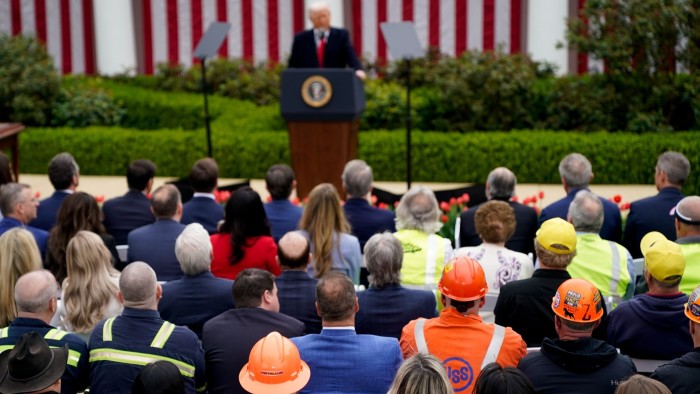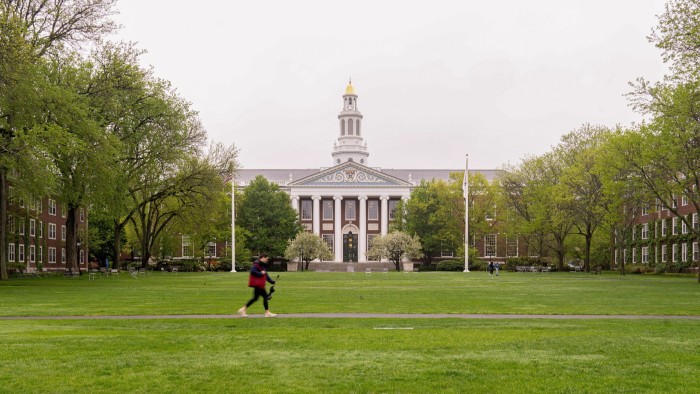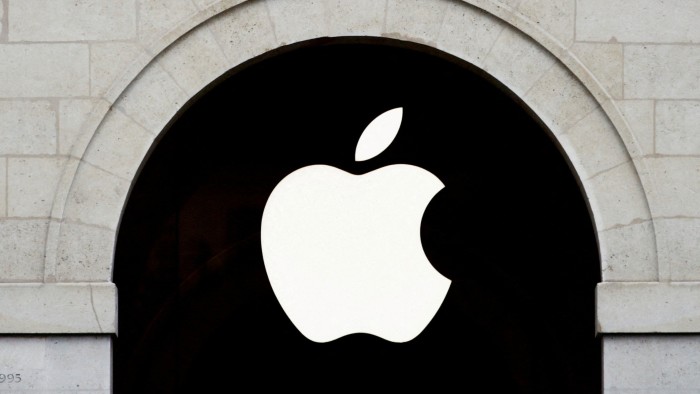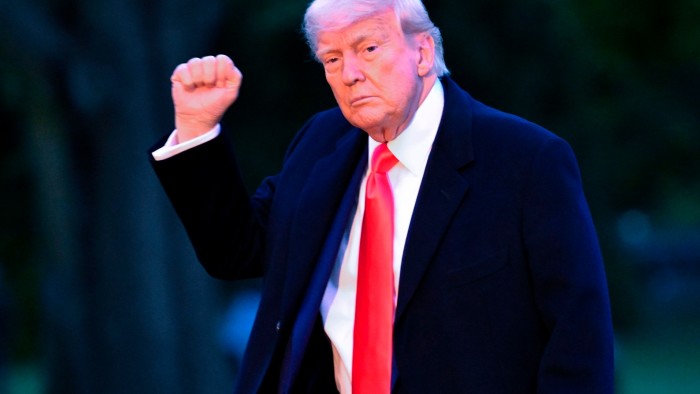Trump’s tariffs are an economic emergency for Americans

Unlock the White House Watch newsletter for free
Your guide to what the 2024 US election means for Washington and the world
The writer is director of economic policy studies at the American Enterprise Institute
“Liberation day” has arrived. Unfortunately, it threatens to liberate Americans from robust real wage growth, low unemployment and a good chunk of their retirement savings.
Trump’s tariffs are an economic emergency. If implemented, the US’s average tariff rate would be higher than under Smoot-Hawley. They would constitute the largest tax increase since the 1968 levies to fund the Vietnam war. Our trade partners would retaliate. By raising taxes and prices, they would erode household income and spending. Business investment spending and US exports would be hit hard. If sustained, this trade war would be likely to cause a recession.
And for what? Around half of US imports are intermediate goods used domestically to produce final ones. High tariffs raise the costs of production for US companies, hurting competitiveness. Take steel. For every one job in US steel production, there are 80 that use steel in production. Trump’s tariffs might indeed help that one steel producer, but they will hurt the 80 others by reducing the competitiveness of their employers.
The economists Aaron Flaaen and Justin Pierce estimate that during Trump’s first-term trade war, the manufacturing employment losses from higher input prices were five times as large as the gains from import protection. In addition, the losses from retaliation were nearly three times as large as gains from import protection.
Already, prominent companies are responding to economic reality. Ohio-based steelmaker Cleveland-Cliffs announced last week that it was laying off 600 workers in Michigan and 630 in Minnesota in order to mitigate falling demand due to Trump’s tariffs. Over the week ending April 1, the company’s share price dropped by 11 per cent.
Vice-president JD Vance argues that Trump “believes in economic self-sufficiency”. Well, to see the benefits of economic self-sufficiency, look to North Korea. Still, Vance is right. Trump is a true mercantilist who views trade deficits with hostility. But his tariffs shouldn’t be expected to reduce the deficit, which is driven by the fact the US invests more than it saves. For evidence, look again to his first term, which saw the US current account deficit increase by 18 per cent from the first quarter of 2017 to the first quarter of 2020.
Moreover, we should not pay special attention to manufacturing or be excessively concerned about the trade deficit. The average wage of a service-sector worker overtook the average manufacturing wage in late 2018. Misplaced nostalgia for an imagined past and the rank politics of swing states are not good enough reasons to attempt to move workers from higher-paying jobs to lower-paying jobs.
Similarly, the trade deficit means the US can consume more than it produces. This is a good thing. Deficits offer consumers greater product variety and give US businesses a competitive edge by allowing workers to focus on higher-value-added productive activities. Again, we should not wish for American workers to return to the days of sewing tennis shoes together in factories.
What about Trump’s other goals? These tariffs will generate revenue to finance tax cuts — but if his objective is to help the working class, then increasing taxes on the consumption of working-class households to finance lower income taxes for well-off households is bizarre. Intentionally slamming the brakes on global economic growth will weaken national security. Flipping the bird to businesses in allied nations will not strengthen supply chains or advance economic resilience.
Trump should be very worried that his working-class tax hike will politically weaken him and other Republicans, making it harder to pass his tax bill in 2025 and keep control of Congress in the 2026 midterms.
A CBS News/YouGov poll last week shows that only 23 per cent of Americans think his policies are making them better off financially — down a whopping 19 percentage points from January. On Tuesday, Democrats performed much better than expected in two House races in deep-red Florida districts. The next day, a handful of Republican senators broke with Trump on trade policy and voted to undo his Canada tariffs. GOP Senator Rand Paul argued that Trump didn’t have the constitutional authority to raise taxes.
The political reality that Americans will aggressively rebel against a president who intentionally jacks up consumer prices and increases unemployment could be the instrument of economic salvation. If Trump cares about Republican success in 2026 and 2028, then he will reverse course before too much economic damage is done. When the dust settles, “liberation day” may end up liberating Americans from the mercantilist fantasies of a deluded president.





